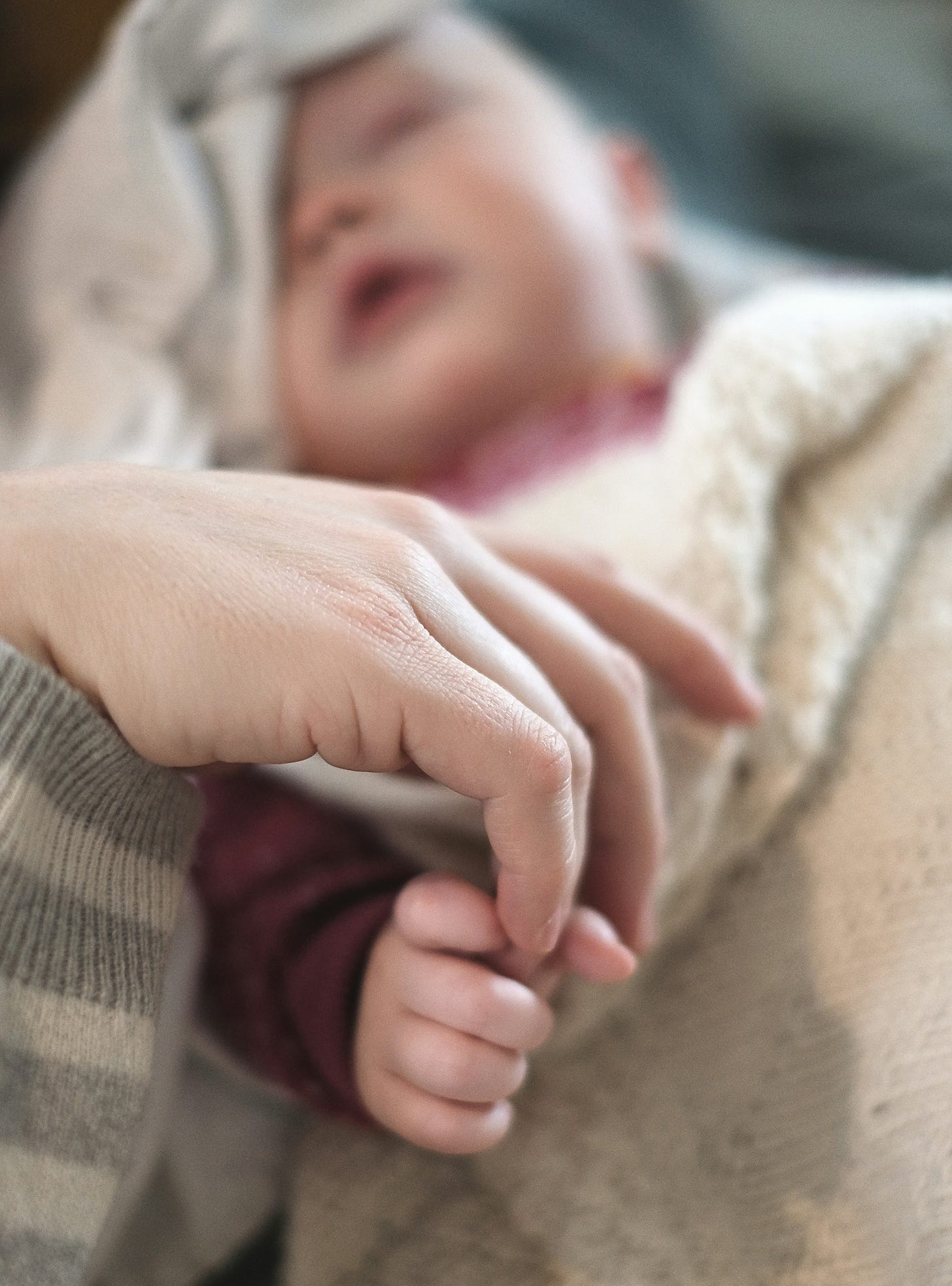Hildegard’s Feather
The end is not what we think; it is more a yielding; to cede our place on watch; to allow another’s care to reign.
He was up on the barn roof. Alone. The rest of us were gathered on the farmhouse porch below, eating our lunch, taking a break. Why he was still up there escapes me now but I can still feel the merciless pitch of the building and my own restlessness as I paced back and forth on the porch. “Leave him alone,” they said. “He’s fine.” “You have to let go.”
My son was a young man then, in his prime. His willingness, his natural capacity for responsibility was dictating his actions. He wasn’t finished yet and he would come down when he was.
The people on the porch knew very little about him or his nature. Equally, they didn’t understand why I was hovering near the rail, keeping him in my sight, never letting go.
When our children arrive, they change us forever. The moment before and the moment after are different not just in degree, or kind but in dimension. Our world opens up and we enter a new landscape in which maps cannot be made and where we navigate by an inner sense that has no name. Our ordinary world does not encompass this inner place.
During the birth pangs, surrounded by loving and kind helpers I went somewhere else. I was out on the water, alone, in a small vessel, a boat perhaps, surrounded by fog. I could hear their voices and I knew I was tethered somehow, that I could make it back when it was time. But for those few moments I was under someone’s watchful care and I was immensely comforted.
That knowing has stayed with me. When there is a need I can return to that place, not to be cared for but for someone else’s need. This link often comes with motherhood, though it need not be the only key. As human beings we are given access to this inner life, this dimension of connectedness whether we know it or not.
In the outer world there is a time span for everything. Everything flows in a natural curve of beginnings and endings. By their reckoning, the people on the porch thought it was time for mothering to end. I did not then, nor do I now disagree. Not in theory at least. What was not known to me or to them was the ending moment.
When something is born it has an innate end time. As parents it is not given to us to know when that will occur. We may need to let go just moments after birth, or when our children are old and gray like us. The end is not what we think; it is more a yielding; to cede our place on watch; to allow another’s care to reign. A change in dimension, as if we move from below, waiting to catch them should they fall to somewhere else where we have new perspectives, new tasks, new desires. We don’t like losing this pride of place. We feel the loss as if nothing could ever take its place.
Standing there on that hot summer day, I knew with a certainty beyond blood and bone that should something happen I would be borne aloft on the breath of God. That the air itself would conspire to help me take flight and carry him down. I knew because I was not done.
Soon after, my son and a young woman who worked in the school housed by that barn roof would take a walk down our lovely, picturesque street. It was their first date. My end time loomed and I was ready.
I have a new place now in the great chain of being. It has new joys and pangs. I am both the watcher and the watched. I am connected.
Photo by Fredrik-Solli-Wandem on Unsplash





What you're talking about seems to me the seed of all morality, its singular vision of the relationship between the self and an other. When you have a child, you are no longer self-sealed the way you were before.
But what is Hildegard's feather?
Beautiful.